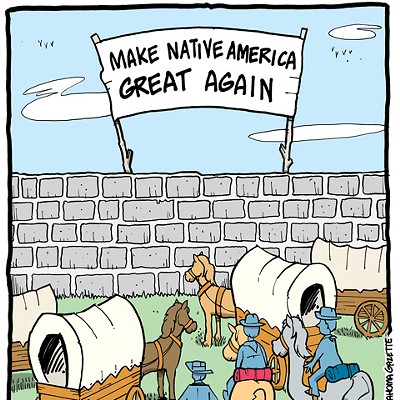The Legislature is considering a joint resolution authored in the House by Rep. Jason Murphey, R-Guthrie, that would limit the terms of lieutenant governor, state auditor and inspector, attorney general, treasurer, commissioner of labor and insurance and superintendent of public instruction. Those serving in those offices would be limited to two terms, or eight years. Murphey's proposal would also restrict the corporation commissioners to two terms, for a total of 12 years' service.
When Oklahoma voted in 12-year term limits for state legislators in 1990, critics attacked the limits as being inherently antidemocratic because they limit voter options at the ballot box. They also cried that special interest groups, lobbyists and staffers would gain power and influence the naive new legislators. That has not happened, and, in fact, Oklahomans have gotten more ethical, principled, transparent government since term limits were enacted than at any time in our state's 100-year history.
At first glance, the critics' first argument makes sense and is logical. Voters do have term limits every time they step into the voting booth. The problem is obscene amounts of money have made their way into politics. The average voter isn't paying much attention to politics, so incumbency become a huge advantage in an election.
Incumbents win about 97 percent of elections, so the odds are hardly in a challenger's favor to "term limit" an incumbent in an election. Some rare politicians self-impose term limits on themselves " Sen. Tom Coburn, for example " but that is not the nature of the political beast. Most politicians love the limelight and don't want to give it up. Because of both of those factors, mandated term limits are absolutely necessary.
There are other reasons to have term limits for all elected offices. Term limits build a citizen government that is consistent with what our founders envisioned. The founders called the concept of term limits "rotation in office."
When President George Washington declined a third term in office in 1796, he said he did it on the grounds that a two-term limit showed respect for American democratic institutions. A generation later, President Andrew Jackson laid the groundwork for the "spoils system." Beginning in 1829, Old Hickory began a wholesale rotation, aka term limits, in federal offices, saying that "no one man has any more intrinsic right to official station than another."
Voters prefer term limits. Every time it is on the ballot, it passes overwhelmingly. Career politicians hate term limits because it forces them to have to go out and get a real job. Lobbyists and bureaucrats hate term limits because it dilutes their influence and power. But recurring succession of change in our statewide offices will only enhance Oklahoma government just as legislative term limits have.
Fair is chairman of the 4th District of the Oklahoma Republican Party. His blog is stevefair.blogspot.com.












